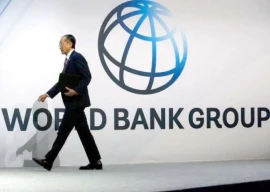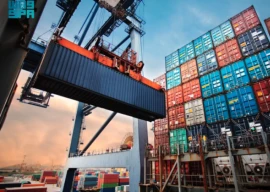
The approvals came on the heel of Pakistan’s top economic managers’ meetings with top management of the World Bank (WB) and the International Monetary Fund (IMF) in Washington, paving the way for rebuilding relations strained after premature culmination of $11.3 billion bailout programme with the IMF.
Pakistan is also negotiating a new loan programme with the IMF and the WB’s approvals are seen as signs of smoothing relations with the fund.
“The $350 million have been approved for Second Punjab Education Sector Project for the education sector reform program designed to increase child school participation and student achievement,” said the WB country office on Friday.
“The Second Punjab Education Sector Project is a concessionary loan. It carries a 0.75% service charge and 1.25% interest rate and will be paid back in 25 years.”
According to the WB country office, the $200 million credit sanctioned for Natural Gas Efficiency Project aims to enhance the supply of natural gas in Pakistan by reducing the physical and commercial losses in the gas pipeline system.
“The Natural Gas Efficiency Project includes $100 million loan from the International Bank for Reconstruction and Development (IBRD), which is an expensive window,” said the WB country office.
“It is a fixed-spread loan with a maturity of 23 years. The remaining $100 million is an IDA credit with the same terms as the Second Punjab Education Sector Project.”
Significant shortfalls persist in both, school participation and student achievement in Punjab.
To address these challenges, the Government of Punjab is implementing the Punjab Education Sector Reform Program (PESRP), which aims to improve schooling outcomes through institutional development and strengthening, improved monitoring, and enhanced governance and accountability.
“With a target school-aged population of over 12 million children, 30% of whom remain out of school and with relatively low levels of learning, continuation of our support to the government’s reform program is critical,” said Rachid Benmessaoud, World Bank Country Director for Pakistan.
“The second phase of the program aims to take the next evolutionary step and zero in on improving service delivery performance at the school level," he said, adding, "A key focus will be improving teacher quality and performance, which is critical for better school quality, and, thereby helping retain students in school and attract new children to school.”
The challenges in the gas sector are also significant. Pakistan faces severe scarcity of gas, with production failing to keep pace with demand.
Other critical challenges include inadequate allocation of gas, inefficient end-use of gas, and high levels of unaccounted-for gas (UFG).
More than 10% of gas supplied in Pakistan is unaccounted for, which is unaffordable and a major contributor to the current gas supply crisis. UFG is typically at 1-2% in OECD countries.
On Sui Northern Gas Pipelines Limited (SNGPL) system the gas losses and theft account for 11% of total supply while on Sui Southern Gas Company Limited (SSGCL) the ratio is 9%.
“Pakistan can save up to $1 billion on fuel oil import bill by bringing this UFG ratio to international levels,” said the WB.
The main focus of the Natural Gas Efficiency Project is to reduce UFG to about 5% by 2017 in distribution areas served by SSGC. This includes Karachi, interior Sindh, and Balochistan.
“Results will be achieved through pipeline rehabilitation, use of cathodic protection to halt corrosion, and installation of automatic pressure management systems and advanced consumer metering systems,” said Bjorn Hamso, World Bank Senior Energy Economist and project team leader.
“Key to the project’s success is to install hundreds of wholesale meters in the distribution network in such way that network activity can be monitored on a localized level and investments can be put to use where the leakage problem is the largest and the theft problem the most severe.”
The project will also provide technical assistance to enhance SSGC’s operational efficiency and service delivery to its customers.
COMMENTS (8)
Comments are moderated and generally will be posted if they are on-topic and not abusive.
For more information, please see our Comments FAQ









1730379446-0/WhatsApp-Image-2024-10-31-at-17-56-13-(1)1730379446-0-270x192.webp)







The beggars,slaves,corrupt and NRO certified PPP's leaders please tell the nation that who will retire/pay the huge debts with heavy %age of mark-ups you are getting from IMF,World Bank and other financial institutions and advanced Western and European countries?????????
None of this money will go to development or education. Based on past history, the money will be used to pay for more weapons. Besides, why should Pakistan need any foreign loans for education and energy projects when it can afford to spend 10 to 12% of GDP on the military?
@Mirza: China = Rocket, Satellite, Tank, Fighter Jet, Social projects
Saudia Arabia = Shariff brothers' rest house
UAE = safe haven for PPP and MQM to run off to when corruption cases start
Yet we are not thankful to these successful democratic nations who pour their hard earned tax money in Pakistan. What have S. Arabia, UAE and China been doing for our civilians? When would we realize who are our freinds and who are our real enemies?
@Salem: And why not? Since we have the most number of children out of school!!
What about the Education in Sindh and Balochistan? Are there no short falls there? Also, how dumb can these guys be to fund a province which is soon going to split into two. I hope South Punjab gets more of this loan than North/Central Punjab when this happens.
All projects in Punjab.. !!! why?